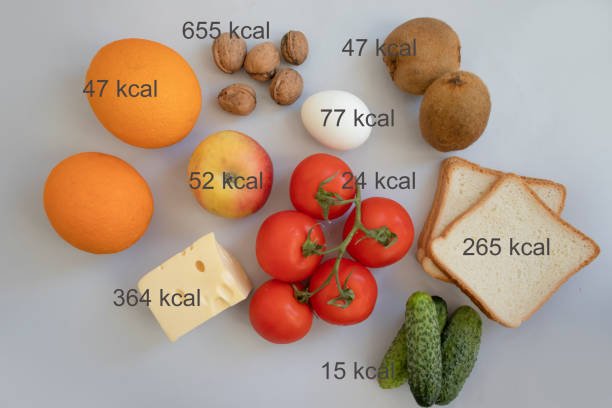Introduction
The Mediterranean diet is often hailed as one of the healthiest eating patterns in the world, offering a variety of health benefits. But what does a Mediterranean diet breakfast look like? This article will walk you through how to incorporate the key elements of the Mediterranean diet into your morning meals. Whether you’re looking to lose weight, boost your energy levels, or just enjoy wholesome foods, this breakfast approach can help you get there.
What is the Mediterranean Diet?
The Mediterranean diet is not a strict regimen but rather a style of eating inspired by the traditional foods of countries surrounding the Mediterranean Sea. This diet is rich in plant-based foods like fruits, vegetables, whole grains, and legumes, as well as healthy fats, particularly from olive oil and nuts. Fish and seafood are consumed regularly, while dairy, poultry, and eggs are included in moderation. Red meat and sweets are consumed in small amounts.
The focus of the Mediterranean diet is on whole, minimally processed foods that are both nutritious and flavorful, offering numerous benefits for heart health, brain function, and overall well-being.

Why Choose a Mediterranean Diet for Breakfast?
Starting your day with a Mediterranean-style breakfast is a smart choice. The Mediterranean diet emphasizes balanced nutrition, which helps to maintain steady energy levels throughout the day. By focusing on fiber-rich foods, healthy fats, and lean protein, you’ll not only feel satisfied but also support long-term health goals.
Here’s why you should consider it:
- Heart health: The diet is rich in healthy fats that reduce bad cholesterol.
- Weight management: Nutrient-dense foods keep you full longer, curbing unhealthy snacking.
- Anti-inflammatory properties: Many Mediterranean foods are high in antioxidants, reducing inflammation.
- Blood sugar stability: Whole grains and fiber-rich fruits keep blood sugar in check.
Key Components of a Mediterranean Diet Breakfast
1. Whole Grains
Whole grains are an essential part of this diet, and they should be a cornerstone of your breakfast. Oats, barley, and whole-wheat bread provide slow-burning carbohydrates, which keep you energized and satisfied. Unlike refined grains, whole grains retain their fiber, vitamins, and minerals, which are important for digestive health and heart function.
Breakfast Ideas:
- Chia seed overnight oats, topped with fresh berries and a hint of honey.
- A slice of whole-grain toast topped with smashed avocado, olive oil, and a sprinkle of sea salt.
- A warm bowl of barley porridge with almonds, cinnamon, and dates.
2. Fruits and Vegetables
Fruits and vegetables are packed with vitamins, minerals, and antioxidants. In this diet, these foods take center stage, even during breakfast. Fresh, seasonal produce is encouraged, but frozen and dried options can be great alternatives.
Breakfast Ideas:
- Greek yogurt with figs and pomegranate seeds, drizzled with honey.
- A simple tomato and cucumber salad, dressed with olive oil and lemon juice.
- Grilled vegetables like zucchini or bell peppers, served alongside eggs or whole-wheat toast.

3. Healthy Fats
A Mediterranean diet isn’t complete without a healthy dose of good fats. Olive oil is the most famous, but avocados, nuts, and seeds also provide essential fatty acids. These fats are great for your heart and help keep you feeling full longer.
Breakfast Ideas:
- A slice of whole-grain toast with mashed avocado, topped with pumpkin seeds.
- A bowl of Greek yogurt with walnuts, a drizzle of olive oil, and a touch of honey.
- Nut butter spread on whole-grain bread, with a side of sliced fruit.
4. Protein-Rich Foods
Protein is crucial for a filling and balanced breakfast, and this diet offers many plant-based and lean animal sources. Eggs, Greek yogurt, nuts, seeds, and even fish like smoked salmon can be incorporated into your morning meal.
Breakfast Ideas:
- A Greek omelet made with tomatoes, spinach, feta cheese, and a drizzle of olive oil.
- Smoked salmon on whole-grain toast with capers and a squeeze of lemon.
- A serving of Greek yogurt with chia seeds and almonds, paired with fresh fruit.
5. Dairy in Moderation
While the Mediterranean diet doesn’t rely heavily on dairy, it includes it in moderation, especially in the form of Greek yogurt and cheeses like feta. These can be part of a healthy breakfast, providing protein, calcium, and probiotics for gut health.
Breakfast Ideas:
- Greek yogurt parfait with honey, walnuts, and fresh figs.
- A small serving of feta cheese in a vegetable omelet or alongside whole-grain bread.
Mediterranean Diet Breakfast Recipes
1. Avocado Toast with a Mediterranean Twist
- Ingredients: 1 slice whole-grain bread, ½ ripe avocado, olive oil, sea salt, cherry tomatoes, feta cheese.
- Instructions: Toast the bread and spread the avocado evenly on top. Drizzle with olive oil, sprinkle with sea salt, and top with halved cherry tomatoes and crumbled feta cheese.
2. Greek Yogurt with Honey and Nuts
- Ingredients: 1 cup Greek yogurt, 1 tablespoon honey, 2 tablespoons walnuts, and fresh fruit (optional).
- Instructions: Scoop the yogurt into a bowl, drizzle with honey, and sprinkle with walnuts. Add fresh fruit if desired for extra flavor and nutrients.
3. Vegetable and Feta Omelet
- Ingredients: 2 eggs, ¼ cup chopped spinach, ¼ cup diced tomatoes, 1 tablespoon olive oil, 2 tablespoons feta cheese.
- Instructions: In a skillet, heat olive oil and sauté the spinach and tomatoes until soft. Beat the eggs and pour them into the skillet. Add feta cheese and cook until the eggs are set.

How to Build Your Mediterranean Breakfast Routine
1. Plan Ahead
The key to staying on track with any eating plan is to plan ahead. Take some time over the weekend to prepare breakfast ingredients like overnight oats, chopped vegetables, or boiled eggs. That way, you have healthy options on hand during busy mornings.
2. Keep It Simple
You don’t need elaborate recipes to enjoy a Mediterranean breakfast. Focus on simple, fresh ingredients like fruits, vegetables, whole grains, and healthy fats. Sometimes, a slice of whole-grain toast with olive oil and a piece of fruit is all you need.
3. Make It Enjoyable
Eating should be a pleasant experience. The Mediterranean diet emphasizes mindful eating, savoring each bite, and enjoying meals with others. Try sitting down for breakfast without distractions like your phone or TV, and appreciate the flavors and textures of your meal.
Common Mistakes to Avoid
1. Skipping Breakfast
Skipping breakfast is a missed opportunity to fuel your body with essential nutrients. Even if you’re in a hurry, try to grab something simple, like a piece of fruit and a handful of nuts.
2. Overloading on Sugar
While fruit is a staple of this diet, be mindful of how much sweet stuff you add to your breakfast. Avoid processed sugars and opt for natural sweeteners like honey or dates in moderation.
3. Ignoring Portion Sizes
Portion control is important, even with healthy foods. Balance is key, so don’t overload your plate with any one food group.
Conclusion
Incorporating a Mediterranean diet breakfast into your daily routine is a delicious and nutritious way to start the day. By focusing on whole grains, fresh fruits, vegetables, lean proteins, and healthy fats, you’ll set yourself up for sustained energy and long-term health benefits. Whether you prefer a hearty omelet or a simple slice of toast with avocado, the Mediterranean breakfast offers endless possibilities to nourish your body and delight your taste buds.



